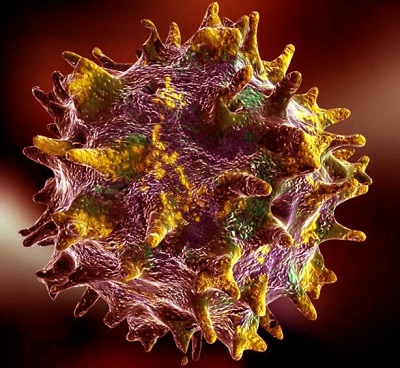Nikhil Prasad Fact checked by:Thailand Medical News Team Aug 25, 2024 8 months, 2 weeks, 1 day, 4 hours, 58 minutes ago
Medical News: Spanish health authorities have issued a critical alert as the West Nile virus (WNV) sees a significant surge in cases, particularly in the Sevilla and Huelva regions. As of this week, 13 new cases have been confirmed, raising concerns about the spread of this potentially dangerous virus. The situation has become so pressing that the Junta de Andalucía’s Ministry of Health has intensified its efforts to track and manage the virus, which is believed to be spread primarily through mosquito bites. So far 8 people have died from West Nile virus infections In Spain in the last month.

This
Medical News report will delve into the details of the current outbreak, the risks associated with the West Nile virus, and the preventive measures that both residents and visitors in Spain should take to protect themselves.
Geographical Spread of the Virus
The recent outbreak has been concentrated in specific areas within the Sevilla province, including Dos Hermanas, Coria del Río, La Puebla del Río, Mairena del Aljarafe, Alcalá de Guadaíra, and Campofrío in the Huelva province. Many of these locations are popular with British tourists and expatriates, heightening concerns among locals and visitors alike. The West Nile virus is not new to Europe, but the recent rise in cases and its spread to new regions have alarmed public health officials.
In response to the outbreak, the Ministry of Health in Spain has issued guidelines aimed at reducing the risk of transmission. Residents and visitors are advised to take precautions, such as applying mosquito repellent, wearing light-colored clothing that covers the skin, and using mosquito nets where possible. These measures are particularly crucial during the early morning and late evening hours when mosquitoes are most active.
Understanding West Nile Virus
West Nile virus is a member of the flavivirus genus, related to the Japanese encephalitis virus, and can cause severe neurological disease in humans. The virus is primarily transmitted through the bites of infected mosquitoes, which acquire the virus by feeding on infected birds. While the majority of people infected with WNV do not exhibit any symptoms, approximately 20% develop mild symptoms such as fever, headaches, body aches, and in some cases, skin rashes and swollen lymph glands.
https://www.cdc.gov/west-nile-virus/index.html
However, the virus can lead to severe and potentially life-threatening conditions, particularly in individuals over 50 or those with pre-existing health conditions like diabetes, hypertension, and cancer. Serious cases can result in encephalitis, meningitis, or even paralysis, requiring hospitalization and intensive care.
Key Findings on the Virus’s Spread
Recent studies have shown that the density of female mosquitoes capable of transmitting WNV is alarmingly high in several municipalities in the Sevilla and Cádiz provinces. The Junta de Andalucía’s Ministry of Health has detected the presence of the virus in mosq
uitoes captured for testing between August 1 and 8, 2024. This finding underscores the importance of ongoing surveillance and public health measures to prevent further spread.
The European Centre for Disease Prevention and Control (ECDC) reported that in 2023, there were 713 locally acquired cases of West Nile virus across nine countries, with 67 fatalities. This statistic highlights the potential severity of the virus and the need for immediate action to curb its spread.
Historical Context and Global Impact
West Nile virus was first identified in Uganda’s West Nile district in 1937 and was later discovered in birds in the Nile Delta in 1953. Initially, WNV was not considered pathogenic to birds until a more virulent strain emerged in Israel in the late 1990s, causing widespread bird deaths. The virus’s impact expanded dramatically when it was introduced to the United States in 1999, leading to a significant outbreak that spread across the country and highlighted the global threat posed by vector-borne diseases.
Since then, WNV has become established in various parts of the world, including Europe, North America, and parts of Asia. The virus is particularly prevalent in regions along major bird migratory routes, as birds serve as natural hosts for the virus. In the Americas, the virus has been especially deadly to birds, with over 250 species affected, particularly members of the crow family.
Current Preventive Measures
Given the absence of a human vaccine for WNV, prevention relies heavily on public awareness and protective measures against mosquito bites. The Spanish Ministry of Health has emphasized the importance of community participation in mosquito control efforts, such as eliminating standing water where mosquitoes breed and using insecticides when necessary.
In addition to personal protective measures, public health campaigns are crucial in educating the population about the risks of WNV and how to minimize exposure. The virus can also be transmitted through organ transplants, blood transfusions, and in rare cases, from mother to child during pregnancy. Therefore, during outbreaks, strict screening protocols for blood and organ donations are recommended to prevent further transmission.
Conclusions and Public Health Implications
The current outbreak of West Nile virus in Spain serves as a stark reminder of the ongoing threat posed by mosquito-borne diseases. The rapid spread of the virus across new regions in Europe underscores the need for vigilant public health surveillance and community-based preventive measures. While the majority of WNV infections are asymptomatic, the potential for severe and life-threatening illness, particularly among vulnerable populations, cannot be ignored.
It is crucial for residents and visitors in affected areas to adhere to the preventive measures outlined by health authorities. By taking proactive steps to protect themselves from mosquito bites and participating in community efforts to reduce mosquito populations, individuals can significantly reduce their risk of infection.
For more on the West Nile Virus crisis developing in parts of Europe, keep on logging to Thailand
Medical News.
Read Also:
https://www.thailandmedical.news/news/parts-of-massachusetts-america-goes-into-voluntary-lockdown-due-to-deadly-eastern-equine-encephalitis-virus
https://www.thailandmedical.news/news/has-the-g4-ea-h1n1-swine-flu-strain-debuted-in-chhattisgarh-india
